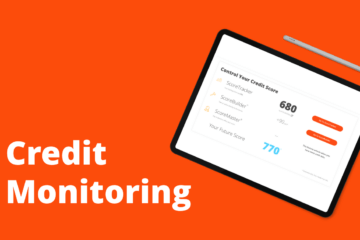Taxes 2024: Navigate the Changes and Maximize Your Refund
Advertiser
Taxes 2024 is a year of changes, with new regulations impacting how individuals file and plan their returns. Understanding these changes is crucial to ensuring compliance and maximizing your refund. In this article, we’ll explore key updates in the tax code, reveal effective strategies for increasing your tax refund, highlight common filing mistakes, and show you how to leverage valuable deductions and credits. Let’s dive into the essentials of managing your taxes like a pro.
Understanding Key Changes in Taxes 2024
One of the significant changes in Taxes 2024 involves updates on income tax brackets. This will affect how much tax individuals pay based on their income level. Another key change includes the adjustment to the standard deduction, which might lower taxable income for many filers. Additionally, modifications in tax credits like the child tax credit and earned income credit can impact families’ finances significantly.
Updates to Income Tax Brackets
Income tax brackets are altered to address inflation, meaning income thresholds for each bracket might increase. This could influence the amount of tax owed by altering which part of your income is taxed at higher rates. It’s essential for taxpayers to identify where they fit under the new 2024 thresholds to plan accordingly.
Changes in Standard Deductions
The standard deduction rate has been adjusted in 2024. For single filers, it could mean an increased deduction amount, thereby potentially reducing taxable income. Married couples filing jointly may also see notable changes in their deduction options, affecting their planning strategies.
Tax Credit Adjustments
Updates in tax credits, such as the child tax credit and earned income credit, are crucial. These credits are essential for qualifying taxpayers as they lower the overall tax due. Understanding the new conditions and eligibility requirements for 2024 is vital for maximizing benefits.
Lastly, be aware of potential legislative shifts or temporary measures that could be introduced this tax season, as prompt adaptability will be crucial for optimizing your financial outcomes.
Strategies to Maximize Your Tax Refund

There are several ways to boost your tax refund in 2024. Start by ensuring that you’re claiming all eligible deductions. For instance, educational expenses, home office costs, and medical expenses may qualify for deductions, reducing taxable income dramatically.
Optimize Retirement Contributions
Contributing to retirement accounts like a 401(k) or IRA can offer substantial tax advantages. By maximizing these contributions, taxpayers not only secure their future but also benefit from valuable tax deferrals or deductions in the current year.
Review Withholding Status
Many individuals fail to update their withholding status annually. Adjusting this to reflect life changes, such as marriage or the birth of a child, can significantly impact tax outcomes. Correct withholding ensures more accurate tax payments throughout the year and prevents unexpected tax bills.
Utilize Tax Credits
Tax credits directly reduce the amount of tax owed, and they can be more beneficial than deductions. Explore opportunities like the earned income tax credit or child tax credit. Understanding their eligibility requirements and claiming them correctly can enhance refunds substantially.
Additionally, consider organizing and maintaining tax-related documents year-round to simplify the filing process and ensure no deductions or credits are overlooked.
Common Mistakes to Avoid on Your Tax Return
Avoiding mistakes on your tax return is crucial for a smooth filing process. One common error is neglecting to report all sources of income. Whether it’s side jobs, freelancing, or rental income, all earnings should be accurately declared. Another frequent mistake involves misplacing crucial documents like W-2s or 1099 forms, which provide essential information for accurate reporting.
Double-Check Personal Information
Incorrect details such as Social Security numbers or bank account numbers can lead to processing delays. Ensuring that all personal data is correct and up-to-date will help streamline the filing process and prevent unnecessary complications.
Incorrect Filing Status
Choosing the wrong filing status can impact your tax outcome dramatically. Whether filing as single, married jointly, or as head of household, it’s important to select the appropriate status to avoid inaccuracies in tax calculations and potential penalties.
Missing Out on Deductions and Credits
Taxpayers often miss valuable deductions and credits. Overlooking these can result in higher tax bills and lost refunds. Familiarize yourself with all available deductions and credits to ensure you’re making the most of your tax situation.
Finally, consider utilizing tax software or consulting a professional to catch potential errors before submission, ensuring your return is error-free and compliant with current regulations.
How to Leverage Tax Deductions and Credits

Understanding how to effectively use tax deductions and credits can significantly reduce your tax liability. Start by exploring all available deductions for which you qualify. Common deductions include mortgage interest, medical expenses, and student loan interest. Maintaining thorough records of these expenses throughout the year simplifies the filing process and maximizes deductions.
Maximize Education-Related Deductions
Education can offer various tax-saving opportunities. The Lifetime Learning Credit and American Opportunity Credit can provide relief for qualified education expenses. Whether you’re paying tuition or student loan interest, these credits can directly reduce the taxes you owe.
Leverage Work-Related Deductions
Work expenses, such as home office costs and job-related travel, might be deductible. Ensure you meet all IRS criteria for these deductions. Self-employed individuals can often deduct a portion of these expenses directly from their business income.
Utilize Health Care Deductions
Medical expenses that exceed a certain percentage of your income may qualify as deductions. This includes insurance premiums and other out-of-pocket health expenses not covered by insurance. Tracking these expenses carefully will enable you to claim them on your return.
Finally, consult with a tax advisor if your financial situation is complex, as they can offer personalized advice to maximize your return through strategic deduction use.
Conteúdo não disponível






